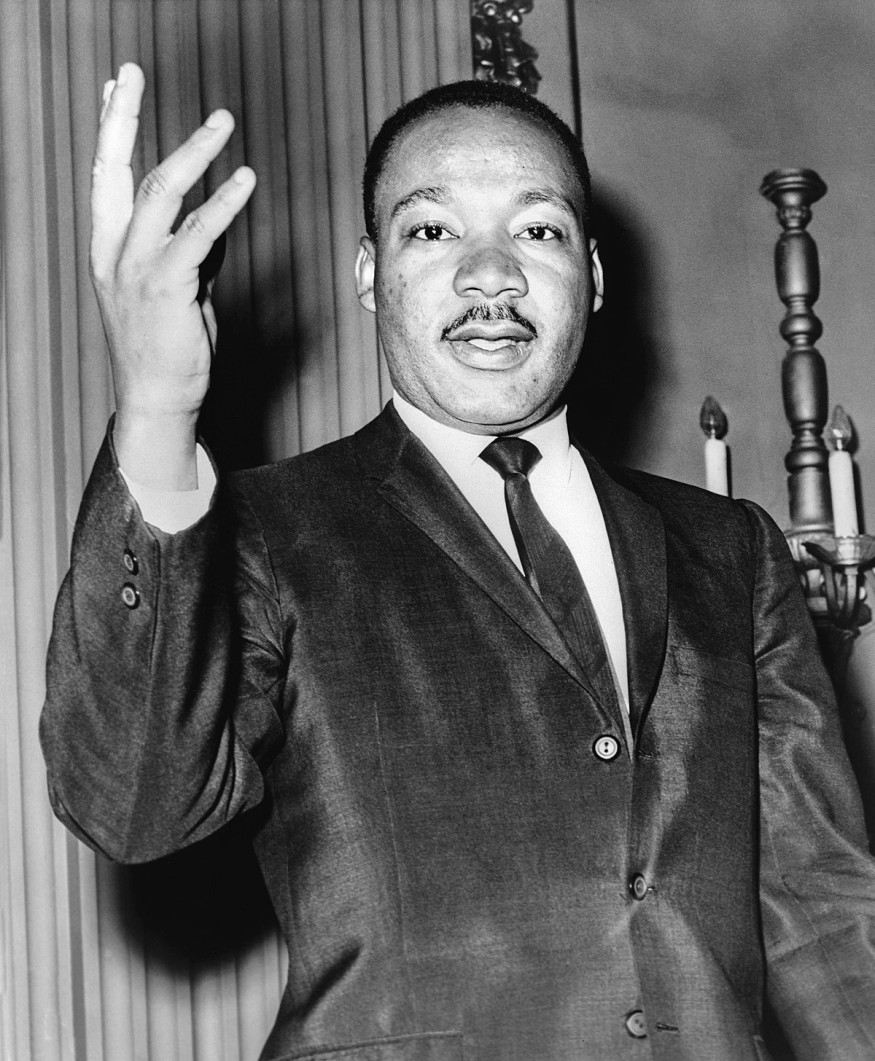5 Latina Activists Carrying Dr. Martin Luther King Jr's Legacy

Dr. Martin Luther King Jr's teachings continue to inform the mission of social activism in the United States and beyond, according to a published article in Hiplatina.
Martin Luther King Jr. once said, "Our lives begin to end the day we become silent about things that matter." 50 years after his death, Martin Luther King is still one of the most celebrated human rights and social activists the world over.
He would be 89 years old if he was still alive today. His life as an activist was not easy. The government, Civil rights leaders, and other activists did not like him. Dr. King was trying to make a change, but his family was harassed by police in 1963 and he spent 11 days in Birmingham jail where he was depicted as a violent person despite his calls for non-violence.
Dr. King's memory is always remembered by Blacks and Afro-Americans who struggled in the United States until today. It's easy to look around and feel like nothing has changed, but the reality is black and brown Americans are no longer struggling for their basic human rights.
Despite this, some Latinas continue the legacy of Dr. King Jr.. They are social activists who believe in the philosophical mindset of Dr. King as a civil and social activist. To get to know them more, here are some details:
1. Sylvia Mendez
The California State legislature determined in 1855 that school boards could not use its government funding to educate the Hispanics and Latinos or the non-American children. This became the starting point of Mendez and five other Mexican-American families to file a case known as Mendez vs. Westminster or Sylvias Case which was upheld in 1947 to desegregate schools in California.
This became the first case in the history of the United States to rule in favor of the desegregation that became a precedent in Brown vs. The Board of Education. Her legacy continued through the advocating for the rights of every Latino and their access to education. And with this, she received a Congressional Medal of Freedom in February 2011 which was awarded by former President Barack Obama.
2. Monica Ramirez
She is an author and the one who created the movement to elevate Latina Pay Day. Ramirez is an award-winning civil rights lawyer who advocates the largest Latina equal payday and the first in the United States to represent female farmworkers against gender discrimination and workplace violence.
She earned her Masters in Public Administration from Harvard Kennedy School. At present, she is the Deputy Director for the Labor Council for Latin American Advancement.
3. Isa Noyola
Isa Noyola is a translatina immigrant rights activist. She's the deputy director at Transgender Law Center and known as the national leader in the LGBTQ immigrant rights movement. She works extensively for the release of transgender women from ICE detention and ends all deportations.
Moreover, she is also affiliated as part of the #Not1more campaign, sits on the advisory board of TAJA coalition, El/La para Translatinas, and Familia: Trans, Queer Liberation Movement. Most of all, she has organized the first-ever trans-anti-violence that brought together more than 100 activists coming from women of color to address the epidemic violence towards trans.
4. Gloria Lucas
She teaches a seminar on why eating disorders in Brown and Indigenous women are social justice issues. She discussed why conversations about body image don't confront the inherit colorism and racism within the makeup of the beauty industry.
5. Nancy Morejon
She was directly influenced by the Black Liberation Movement in the United States. She is known for her works in issues that encompass ethnicity, gender, history, politics, and Afro-Cuban identity. She is the best known and most translated female poet of the post-revolutionary in Cuba.
Along with her influence and dedication, she received the Critic's Prize in 1986 and Cuba's National Prize for Literature in 2001. At present, she works at the Caribbean Studies Center at Casa de las Americas, Havana.
Subscribe to Latin Post!
Sign up for our free newsletter for the Latest coverage!
















